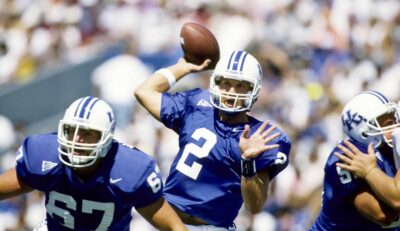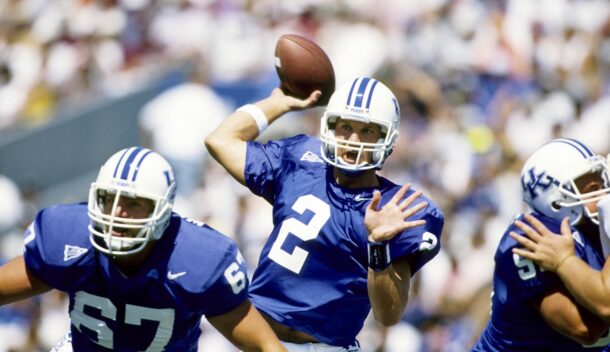
Desperate times called for desperate measures, which made firing Will Muschamp South Carolina’s only choice
Somewhere between the moment Will Muschamp walked out of Death Valley and the moment Lane Kiffin threw up his playsheet into the Oxford sky, reality sank in for South Carolina.
The time had come. The Muschamp era was over, and there was nothing that was going to turn it around.
Saturday night’s 3-score loss to a 2-win Ole Miss team with a Year 1 head coach was a fitting end for Muschamp. South Carolina is set to pay him a reported $13.2 million buyout to not coach.
Desperate times called for desperate measures. Unlike last November, there was no debate about whether South Carolina reached out to Florida State for tips on how to pay an $18 million buyout. This November, South Carolina was desperate enough to shell out a school-record buyout for a coach who watched his time come and go.
Once upon a time, that window was there. Remember the Outback Bowl? The comeback win against a traditional powerhouse like Michigan was supposed to be the beginning of the turnaround. That’s partially why Muschamp was rewarded after a 7-win season in 2018 with an extension. Athletic director Ray Tanner wanted Muschamp to work. Hence, why the buyout was $19 million in 2019.
After that Michigan win, Muschamp posted a 13-19 overall record and a 9-14 mark in SEC play. It wasn’t the turning point; it was the apex.
But there’s a number about Muschamp within that record that even the “but he cleaned up Steve Spurrier’s mess” crowd couldn’t spin. Of those 14 losses, 12 were by at least 14 points. It wasn’t a play here or a play there. It was nights like Saturday. It’s never a good sign for a defensive-minded coach when the opposing quarterback, who throws for a record-setting amount of yards, says afterward that “we knew what they were going to be in before we even called a play.”
Muschamp’s defense allowed a minimum of 48 points in each of his final 3 games. It wasn’t just that South Carolina once again wasn’t in contention for an SEC East crown. Getting embarrassed was finally deemed unacceptable. The writing was on the wall.
And for what it’s worth, this wasn’t just about Muschamp’s demeanor. If anything, his fiery personality was a rallying cry for fans. This is the type of reaction that a fan base wishes every coach has on an egregious call like the one we saw before halftime on Saturday night:
When you’re at Chili’s for a lovely Tuesday night dinner and you see the server take your fajitas to the wrong table. pic.twitter.com/VtNqEnFMtb
— Saturday Down South (@SDS) November 15, 2020
Inevitably, Muschamp is going to get an opportunity as a Power 5 defensive coordinator, where those reactions are probably better served.
Let’s be honest, though. He was never cut out to be a head coach. At least not one who proved he was worthy of the programs he ran.
It’s still baffling to think that he inherited Urban Meyer’s program at Florida and he had a winning SEC record in 1 season in Gainesville. The same was true of his time at South Carolina, where Muschamp pulled off the miraculous feat of a 5-3 SEC mark in 2017, though none of those wins came against ranked foes.
Speaking of ranked foes, Muschamp went 3-17 against them. Winning 15% of your games against ranked teams doesn’t get many SEC coaches a Year 6. You could forgive Muschamp for losing to Clemson. That’s bad luck that the Tigers turned into the closest thing to Nick Saban’s Alabama during the exact same time that Muschamp was trying to build a program.
But consider this. Here’s Muschamp’s record against every divisional foe:
- Florida — 1-4
- Georgia — 1-3
- Kentucky — 1-3
- Mizzou — 3-1
- Tennessee — 3-2
- Vanderbilt — 5-0
Take away Vanderbilt, and remember that Tennessee won each of the last 2 games against the Gamecocks. Nobody is paying $5 million in hopes of beating Vanderbilt and post-Gary Pinkel Mizzou, which accounted for more than half of Muschamp’s wins against the division.
How many SEC road wins did Muschamp get against a non-Vandy team? Four, and only 2 of those came post-Outback Bowl. None was more baffling than the 2019 game against Georgia. Then again, perhaps it made sense that Muschamp’s best win at South Carolina came against a team without a modern offense.
It’s no secret that Muschamp’s biggest undoing as a head coach was his inability to manage the quarterback position. Jeff Driskel, Jacoby Brissett, Treon Harris, Will Grier, Brandon McIlwain and Jake Bentley were all 4-star recruits (or better) who played under Muschamp and eventually transferred from Florida or South Carolina. That didn’t include Dakereon Joyner, who changed positions. Who knows how Ryan Hilinski fits into that equation after he went from true freshman starter to borderline backup to a Mountain West grad transfer.
Muschamp proved to be a cautionary tale of what can happen when a big-time defensive coordinator makes the jump to becoming a head coach at a major program. Muschamp didn’t have to handle a quarterback situation when he was a defensive coordinator.
Florida fans watched him struggle with that, as did South Carolina fans. Muschamp’s rise didn’t allow for him to mess up a quarterback situation at some random Group of 5 school before learning how to handle it in the SEC.
Go ask Kirby Smart and Jeremy Pruitt about mismanaging a quarterback room as a first-time head coach at a major program. It’s not fun.
Muschamp going out and landing Mike Bobo as his offensive coordinator was supposed to be his difference-maker in 2020. That hire was supposed to make or break Muschamp’s time at South Carolina. Did it? Or was it Muschamp’s inability to stop 3 teams that ran modern offenses that stretched the field vertically?
(Muschamp also coached the safeties, in case you were wondering.)
In the end, there was nobody else to blame. Three consecutive disappointing seasons. Three consecutive disappointing games. One step forward, 3 steps back.
Even in a pandemic season in which programs flushed with cash like rival Clemson had coaches taking pay cuts, South Carolina decided that $13 million was a price worth paying to start over. It was roughly a $6 million decrease on what last year’s buyout would’ve been, though with Muschamp’s $4.6 million annual salary, one could argue that South Carolina just delayed the inevitable.
To continue with the Muschamp era would’ve been accepting a declining program for no other reason than the bottom line. Perhaps it took a pandemic season for those issues to get magnified. It was once fair to wonder if that would actually prevent South Carolina from paying an 8-figure buyout.
We got our answer Sunday night. For the second time since 2015, South Carolina will replace a coach midseason. Unlike the bizarre, anticlimactic end to the Spurrier era, Muschamp didn’t decide his fate in Columbia.
That fell to an administration that reached a new level of desperation in 2020.
Connor O'Gara is the senior national columnist for Saturday Down South. He's a member of the Football Writers Association of America. After spending his entire life living in B1G country, he moved to the South in 2015.







